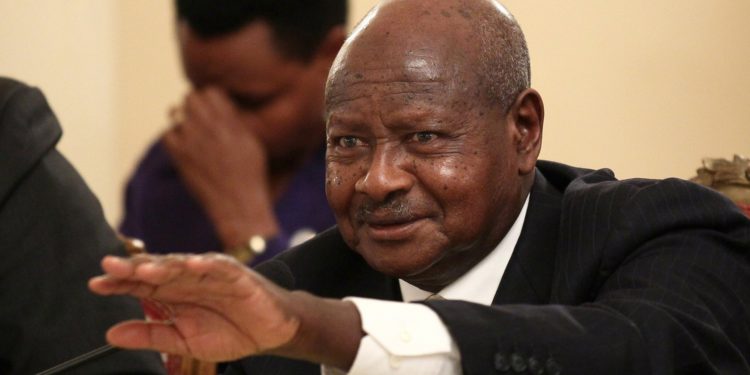By AGGREY BULUBA
Kampala, Uganda — President Yoweri Museveni recently took to social media to outline his stance on the ongoing debate surrounding the rationalization of government agencies and authorities. This announcement comes amid growing tension among Members of Parliament (MPs), many of whom oppose the proposed merger of the Uganda Coffee Development Authority (UCDA) with the Ministry of Agriculture. Lawmakers from coffee-growing regions, particularly Buganda, fear the merger could undermine the economic contributions of Uganda’s coffee industry and disrupt local livelihoods.
In a straightforward tone, Museveni reminded Ugandans, especially his “Bazzukulu” (grandchildren), that rationalization is intended to “do away with the irrationalities” and eliminate waste. He emphasized that the National Resistance Movement (NRM) government is focused not on sustaining elite institutions but on fostering broader economic participation and growth.
The President outlined two key points. First, he highlighted the contrast between the colonial “enclave economy,” which focused on a few export-oriented products like coffee, tea, and cotton, and the NRM’s broader economic vision. This new approach, Museveni explained, promotes a more diverse portfolio of agricultural products, including maize, cassava, poultry, fish, and dairy, to harness Uganda’s full potential.
He also highlighted the importance of regulation and maintaining quality standards across sectors. According to Museveni, maintaining numerous agencies for each product or service creates unnecessary administrative burdens. Instead, he proposed two solutions: consolidating quality control roles under a standards department within ministries, or creating an “omnibus” authority to regulate all ingestible goods.
Museveni’s message emphasizes a back-to-basics approach—eliminating redundancies and wisely using resources. “In the early days, we knew products like coffee, tea, tobacco, and cocoa were valuable for business, but they were not staple foods,” he said, adding a proverb-like phrase: “Can you survive on stimulants for a month?”
The President asserted that the NRM is committed to mass participation in economic development, moving away from what he calls the “parasitic elite line of colonialism.” He attributed past failures to elite-driven initiatives, explaining that programs like the National Agricultural Advisory Services (NAADS) and UCDA had lost sight of the “mass line of prosperity.” Museveni emphasized that initiatives such as the Parish Development Model (PDM), Emyooga (a local economic empowerment initiative), and various youth projects aim to bring economic opportunities to all Ugandans.
As the debate intensifies in Parliament, Museveni’s message stands as a call for unity and a reminder of Uganda’s broader goals. With his rallying words, he left Ugandans challenged to move forward, using proverbs to underscore the value of self-reliance and frugality.







Discussion about this post